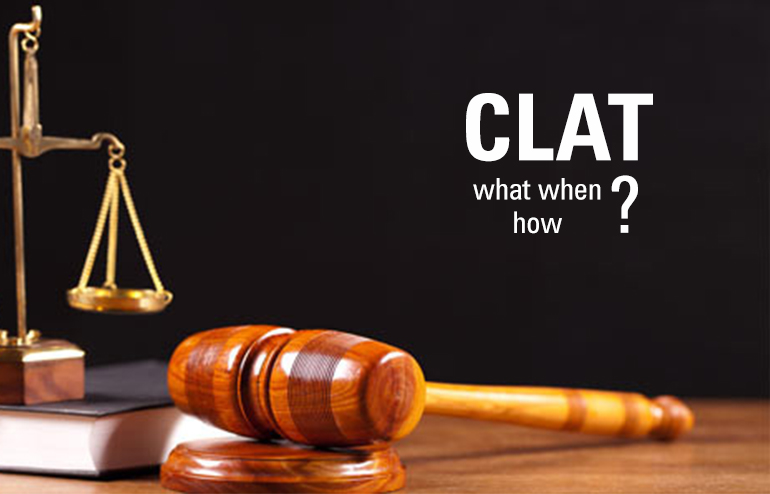CLAT Eligibility :
To be eligible for CLAT, the candidates must have secured:
Forty five percent (45%) marks in Qualifying Exam (Class XII or equivalent) in case of candidates belonging to Unreserved /OBC /Specially Abled Persons (SAP) and other categories.
Forty Percent (40%) marks in case of candidates belonging to SC/ST categories.
Candidates who are appearing in the qualifying examination in March/ April are also eligible for appearing in CLAT online examination. However, they shall be required to produce an evidence of their passing the qualifying examination at the time of admission, failing which they shall lose their right to be considered for admission.
The result of qualifying examination (i.e., 10+2) shall be submitted by the candidate at the time of admission failing which the candidate shall be ineligible for admission to the Course.
CLAT Syllabus:
CLAT 2018 shall be conducted in online mode where the paper will have 200 questions from five different subjects including English (Comprehension), General Knowledge & Current Affairs, Elementary Mathematics (Numerical Ability), Legal Aptitude and Logical Reasoning. Scope and coverage of questions under different subject areas:
English including comprehension:
The English section will test the candidates’ proficiency in English based on comprehension passages and grammar. In the comprehension section, candidates will be questioned on their understanding of the passage and its central theme, meanings of words used therein, etc. The grammar section requires correction of incorrect grammatical sentences, filling of blanks in sentences with appropriate words, etc.
General Knowledge and Current Affairs:
The General knowledge will be tested on the general awareness including static general knowledge. Questions on current affairs will test candidates on their knowledge of national and international current affairs.
Mathematics:
This section will test candidate’s knowledge on elementary mathematics, i.e., maths taught up to 10th Class/standard.
Legal Aptitude:
This section will test candidate’s interest towards study of law, research aptitude and problem solving ability. Questions may include legal propositions (described in the paper), and a set of facts to which the said proposition has to be applied. Some propositions may not be “true” in the real sense, candidates will have to assume the “truth” of these propositions and answer the questions accordingly.
Logical Reasoning:
The purpose of the logical reasoning section is to test the candidate’s ability to identify patterns, logical links and rectify illogical arguments. It may include a variety of logical reasoning questions such as syllogisms, logical sequences, analogies, etc.






